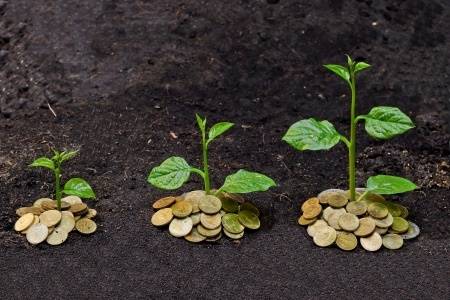Is it time for economic development as a central strategy of the new recovery advocacy movement?
 Weerapat Kiatdumrong
Weerapat Kiatdumrong
Liberation movements to alter the cultural status and global health of historically marginalized groups must inevitably forge pathways of inclusion into the mainstream economy or build alternative systems of economic participation. These twin strategies achieve many goals. They reduce the marginalized groups' vulnerability for economic exploitation by the dominant culture. They break the marginalized community's dependence upon the financial largesse of the dominant culture. They weaken illicit underground economies that undermine personal and community health. They expand opportunities for licit economic development, forging new community institutions and leaders that enhance the resilience of individuals, families, and neighborhoods. They provide opportunities for meaningful work and community service. And they elevate community cohesion and an ethic of mutual aid, e.g.,We each rise when all rise. When successful, these strategies elevate the esteem and status of marginalized groups and counter the personal and collective stigma that limits one's sense of possibilities. In the United States, economic development has been an essential component of social movements that have worked to alter the status of communities of color, migrant workers, women, persons with disabilities, and the LGBT community.
This raises a series of provocative questions.
Is it time for people in recovery to rise above divisions of age, gender, gender identity, race and ethnicity, sexual orientation, political and religious affiliations, past drug preferences, and diverse pathways of recovery to experience their larger oneness? Is it time for people in recovery of all stripes to recognize their membership in an ecumenical culture of recovery recognize themselves as "a people" with a shared history and future that transcends their identification or lack of identification with a particular recovery mutual aid group?
Is it time the organized recovery advocacy community more aggressively challenged the addictions service industry to politically and financially support recovery-focused public and professional education and the expansion of local non-clinical recovery support services? Addiction-related treatment, research, educational, and peer certification/licensing bodies are drawing financial capital and other resources from the recovery community; are they returning financial capital and other forms of support to the recovery community to enhance its economic and cultural development?
Is it time recovery advocacy organizations exposed and legally and legislatively challenged discriminatory practices that affect the hiring, retention, and advancement of people in recovery within the nation's workforce?
Is it time we moved beyond "We recover!" declarations to assert that we also vote, work, pay taxes, volunteer, AND patronize local businesses with financial resources that no longer feed licit and illicit drug industries?
Is it time we recognized the immense size of this community and the potential to carry recovery through our collective buying power? Is it time recovery-generated dollars were spent whenever and wherever possible to support recovery community institutions, recovery-friendly businesses, and people in recovery?
Is it time local recovery community organizations (RCOs) created an Honor Roll of recovery-friendly workplaces and encouraged members of the recovery community to patronize these businesses?
Is it time we created an alternative economy?alternative to the mainstream and illicit economies to support the employment of people in recovery who face multiple obstacles to economic self-sufficiency, e.g., age, minority status, limited education, past incarceration, limited or stained licit employment history, or chronic health challenges?
Is it time local RCOs served as incubators for small business development organized by and employing people in recovery?
Is it time philanthropists in recovery and others affected by addiction created rotating loan funds to help people in recovery start their own businesses?
Is it time for people in recovery from diverse occupations to mentor people in recovery who seek entry into or advancement within those occupations?
Is it time to create scholarship funds to support people in recovery seeking technical, college, or post-graduate education?
Yes!? It is time!